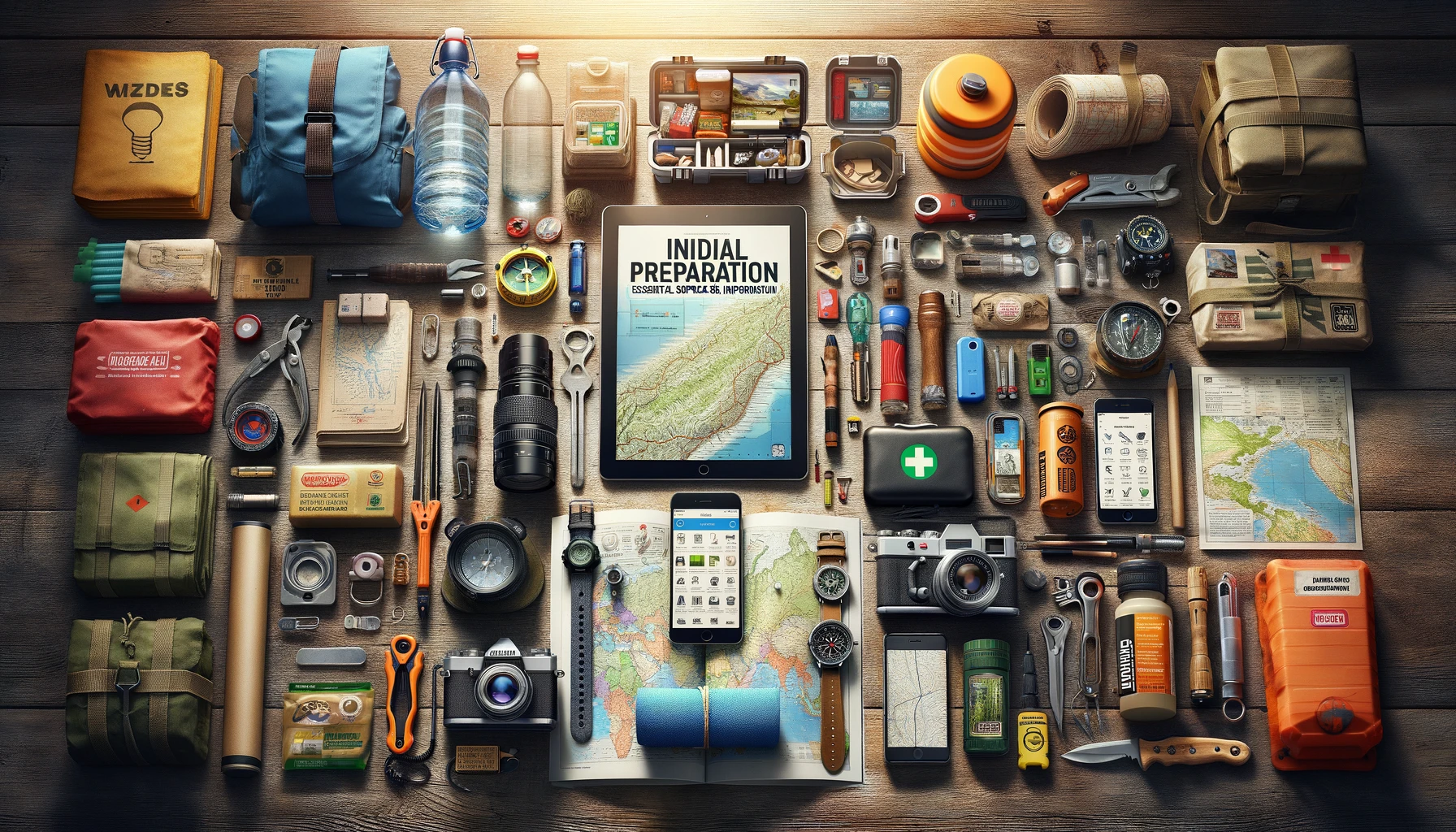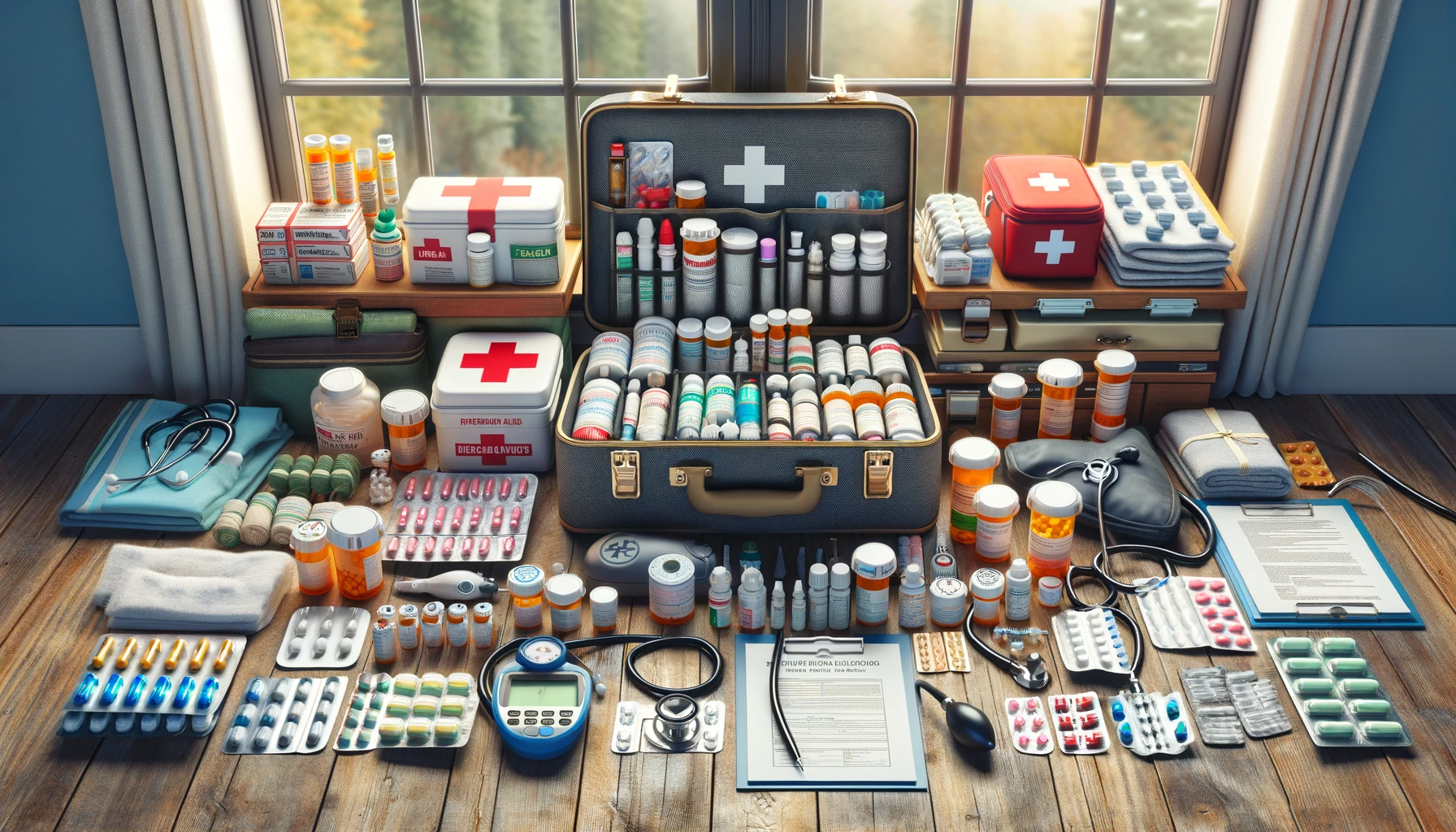Power outages, whether caused by severe weather, technical failures, or maintenance work, can disrupt our daily lives significantly. Being prepared for such scenarios ensures safety and comfort even when the lights go out. This comprehensive guide will walk you through essential steps and tips for managing without electricity, covering everything from initial preparation to sustaining comfort and safety during prolonged blackouts.
Understanding Power Outage Causes and Risks
Power outages can occur for various reasons, including severe weather (storms, hurricanes, blizzards), technical failures in the power grid, or scheduled maintenance. Each scenario poses different challenges and risks, from minor inconveniences to significant threats to safety and property. Understanding these risks is the first step in preparing for power outages, enabling you to tailor your preparedness plan to specific scenarios.
Initial Preparation: Essential Supplies and Information
Building an Emergency Kit

An emergency kit is crucial for power outage preparedness. Your kit should include flashlights, batteries, a first-aid kit, non-perishable food, water, a manual can opener, and other essentials. Tailor your emergency kit to meet the specific needs of your household, including pets, children, and any medical needs.
Staying Informed
Knowing where to get accurate information during a power outage is essential. Invest in a battery-powered or hand-crank radio to receive updates from local authorities and weather stations. Additionally, ensure your mobile devices are charged and consider purchasing portable chargers or solar chargers to keep them powered.
Food and Water Safety
Managing Food Supplies
Without electricity, refrigerators and freezers will stop cooling, putting your food supplies at risk. Understand how to manage and prioritize food consumption to minimize waste and avoid foodborne illnesses. Learn the safe temperatures for storing food and the duration that foods can remain safe to consume without refrigeration.
Securing Water Supplies
Water purification systems may fail during a power outage, compromising water safety. Store sufficient water for drinking, cooking, and hygiene. Learn how to purify water if necessary, using methods like boiling, chemical purification, or filtration.
Maintaining Comfort and Safety
Lighting and Warmth
Maintaining adequate lighting and warmth is crucial, especially during extended outages in colder months. Explore safe alternatives to electrical lighting, such as solar-powered lights or battery-operated lamps. Understand the importance of conserving heat and the safe use of alternative heating sources like wood stoves or portable heaters.
Communications and Connectivity
Staying connected with the outside world is important for receiving updates and contacting emergency services if needed. Discuss strategies for conserving mobile phone battery life and alternative communication methods, such as two-way radios.
Health and Medical Considerations

Managing Medications
For those reliant on medication, power outages can pose significant risks. Discuss how to store medication safely without refrigeration and the importance of maintaining an up-to-date list of medications for all household members.
First Aid and Medical Care
A well-stocked first-aid kit and basic first-aid knowledge can be lifesaving during a power outage. Highlight the essentials of first aid care and consider the benefits of attending a first-aid course.
Preparing for Prolonged Outages
Financial and Document Safety
In preparation for prolonged outages, secure your financial assets and important documents. Discuss the importance of keeping cash on hand and storing documents in waterproof, fireproof containers.
Community and Neighborhood Support
Building a support network within your community can provide additional resources and assistance during extended power outages. Explore ways to collaborate with neighbors for shared resources like generators or for assistance with vulnerable individuals.
Conclusion
Power outage preparedness is about more than just surviving; it’s about maintaining a level of comfort and safety until normalcy is restored. By understanding the causes and risks, gathering essential supplies, and implementing strategies for food, water, warmth, and communication, you can navigate the challenges of a power outage with confidence. Remember, preparedness starts with awareness and planning—well before the lights go out.
Additional Resources
For further reading, consider resources from local emergency management offices, the Red Cross, and FEMA. These organizations offer detailed guides and checklists that can help you prepare for and respond to power outages and other emergencies.
Sustainable Energy Solutions for Power Outages
In the face of a power outage, relying on sustainable energy solutions can be a game-changer for maintaining power in essential areas of your home. Here’s a closer look at how battery backups, solar power, and inverters can be part of your preparedness strategy.
Battery Backups
Battery backups, or Uninterruptible Power Supplies (UPS), can provide critical power to essential devices during a power outage. These devices are particularly useful for powering medical equipment, computers, and other essential electronics for short periods. Discussing how to select the right UPS for your needs based on capacity, output, and runtime can guide readers in making informed decisions.
Solar Power Solutions
Solar power offers a renewable way to generate electricity, making it an invaluable resource during prolonged power outages. Solar panels, combined with battery storage systems, can keep critical systems running, including lights, small appliances, and communication devices. Exploring the basics of setting up a solar power system, including the types of solar panels, battery storage options, and the importance of a charge controller, can provide readers with a primer on solar energy.
Inverters
Inverters play a crucial role in converting stored energy from batteries into usable AC power for household devices. When discussing inverters, it’s important to cover the different types available (such as pure sine wave and modified sine wave inverters) and how to determine the appropriate size and capacity for your needs. Offering insights into how inverters integrate with solar panels and battery storage systems can help readers understand how to create an efficient and reliable power backup system.
Implementing Sustainable Power Solutions
Detailing a step-by-step guide on implementing these sustainable power solutions—from assessing energy needs and choosing the right equipment to installation and maintenance—can empower readers to take actionable steps towards preparedness. Sharing real-life examples of how individuals have successfully used these technologies during outages can also inspire and inform.


0 Comments